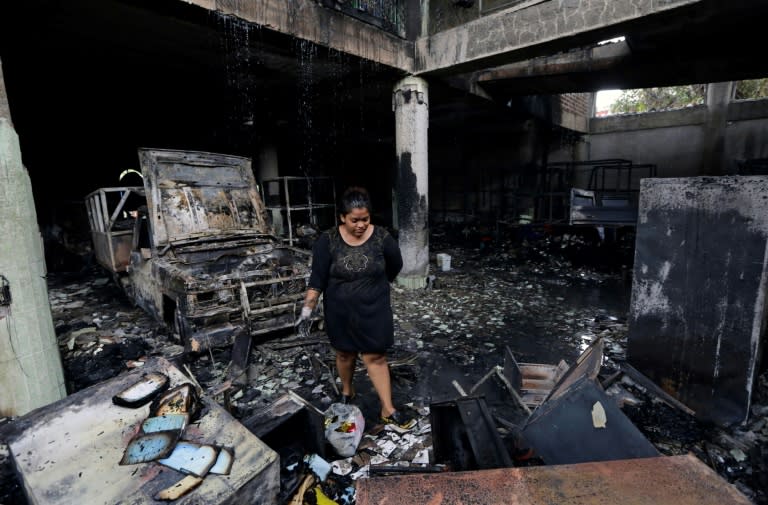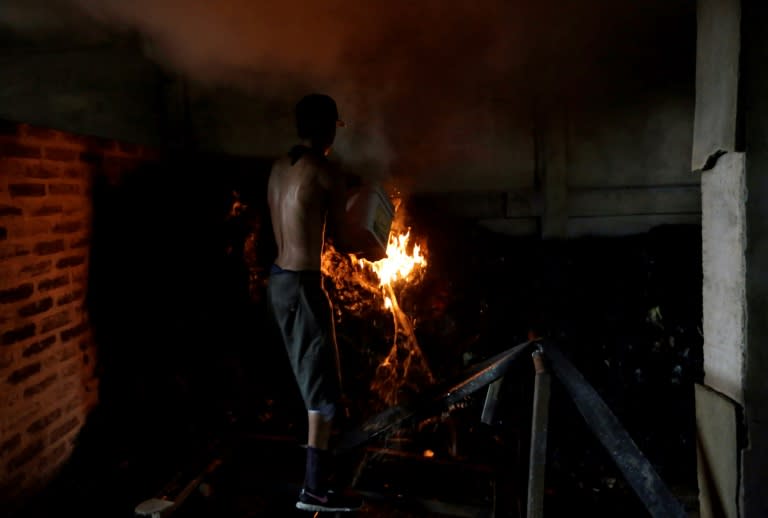Violent deaths overshadow Nicaragua crisis talks
At least eight people were killed Saturday in Managua, police sources said, raising to 178 the number of deaths in anti-government unrest that began two months ago in Nicaragua. Six of the dead were members of a single family whose home was burned down at dawn after a group of hooded armed men threw a Molotov cocktail, while the other two were attacked while clearing road barricades, police said in a statement. Two inhabitants of the house survived by throwing themselves from a balcony, one of them a woman in serious condition and the other a child admitted to the hospital with burns, according to neighbors. "This act of terror is a crime against humanity and cannot go unpunished," tweeted Luis Almagro, head of the Organization of American States. Protests for two months have escalated in a bid to pressure President Daniel Ortega to exit -- upheaval the government has met with brutal repression. The latest violence comes as the country's Catholic bishops attempt to reboot fragile negotiations between government and civil society representatives. In a surprise announcement late Friday, the clergy said rival government and civil delegates had agreed to create a "verification" commission and invite independent international bodies to probe the violence. Under the new agreement, Managua would urge the Inter-American Commission on Human Rights -- an autonomous branch of the Organization of American States -- to investigate "all deaths and acts of violence, the identification of those responsible and a comprehensive plan for the victims so that effective justice is achieved," Cardinal Leopoldo Brenes said. - Expedite elections? - Bishops reconvened government and civil representatives to discuss "the process of democratization of the country." The talks ended with plans to meet again Monday and discuss a "timetable of reforms" that would include consideration of "advancing the elections from 2021 to March 2019," Catholic bishops said. Brenes said the Church had asked Ortega to move up the next general election -- a key demand of activists. The president refused to answer directly, instead telling the bishops "we reiterate our full readiness to listen to all the proposals within an institutional and constitutional framework." The leftist leader has in the past expressed no intention of stepping aside. Nicaragua's descent into chaos was triggered on April 18, when relatively small protests against now-scrapped social security reforms were met with a government crackdown. Those demonstrations mushroomed into a popular uprising, with anti-government protesters facing off against police and pro-Ortega paramilitaries. Activists have erected blockades on more than two thirds of the country's roads in a bid to fend off Ortega-backed forces. The makeshift roadblocks have wreaked economic havoc, halting the delivery of goods and thwarting regional trade. The Nicaraguan Foundation for Economic and Social Development (FUNIDES) estimates the country could lose up to 150,000 jobs by the end of the year if the crisis persists. The church had launched earlier talks with Ortega but called them off after a march led by victims' mothers last month turned deadly at the hands of Ortega-backed forces. The embattled president's Sandinista guerrilla forces ousted the Somoza dictatorship in 1979, and the leftist leader has remained a major political force ever since. He is currently serving his third consecutive executive term, due to expire in 2022.





